I was there for a while and they bring me the tools I needed to renew my life. I only want to said thank you. Great Facility
About AdCare Rhode Island
At AdCare Tower Hill Road, numerous services are offered to individuals in recovery. Many of these services are included in the addiction treatment programs offered by this detox center. These programs can be seen below:
The detox treatment program at this addiction treatment center helps individuals struggling with withdrawal symptoms and cravings. This program operates from 7 a.m. until 5 p.m. and requires patients to stay at the detox center.
During detox, individuals will access healthy and nutritious meals, group therapy, and psychoeducational groups focusing on stress management and mindfulness. In addition, patients will also be required to attend AA and NA meetings nightly.
At AdCare – Tower Hill Road, individuals can enroll in an intensive outpatient program (IOP). This IOP offers evidence based addiction treatment that is more intensive than general outpatient programs. During treatment, patients will attend three individual or group counseling sessions weekly in three hour blocks.
Like day treatment, individuals will also recieve substance abuse disorder services that are focused on drug and alcohol addiction education and recovery. Some of these services include yoga, meditation, community support groups, and animal therapy.
This addiction treatment center’s inpatient residential treatment program is highly structured. It offers group, individual, and family therapy alongside case management, support groups, and various substance abuse treatment services. The group sessions are five to seven hours long and are led by nurses and licensed medical staff.
In addition, the education groups are led by addiction specialists. This program also offers individuals relapse prevention services, focus support groups, and drug rehab facilities like private baths, a fully equipped gym, and semi-private bedrooms. Moreover, patients can enjoy various activities like basketball, acupuncture, art, and music.
Facility Overview
Latest Reviews
Best,
AdCare Rhode Island Staff
Rehab Score
Gallery
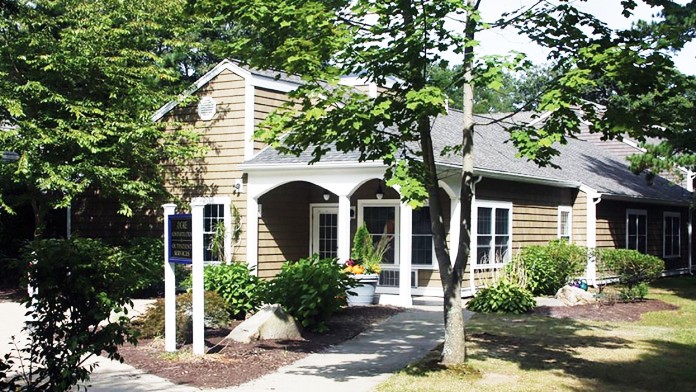
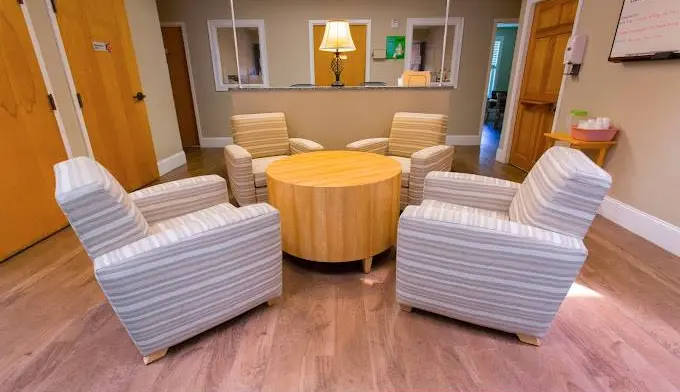
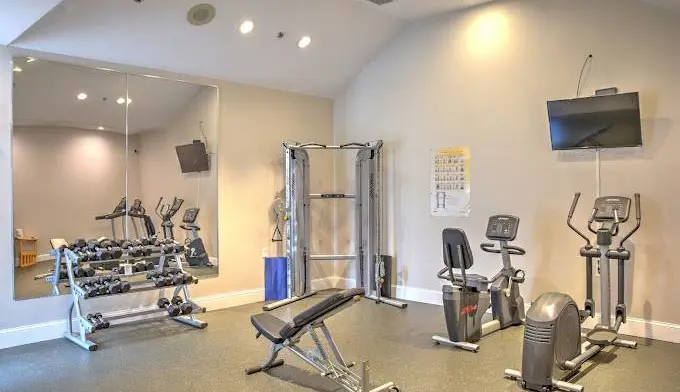
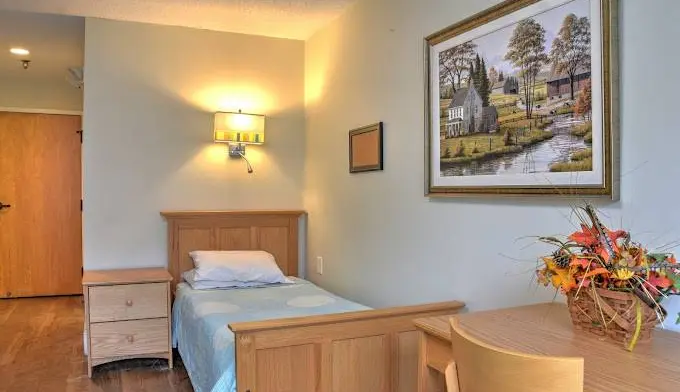
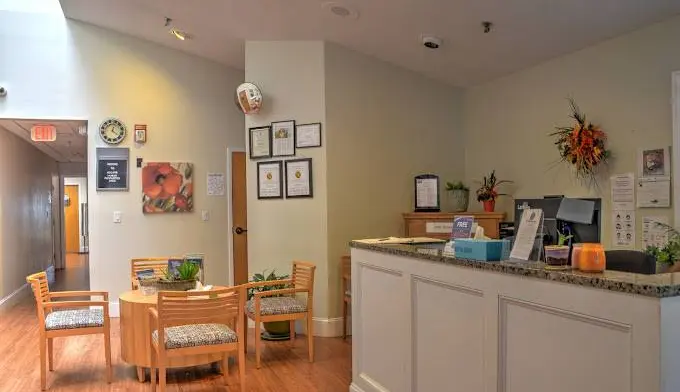
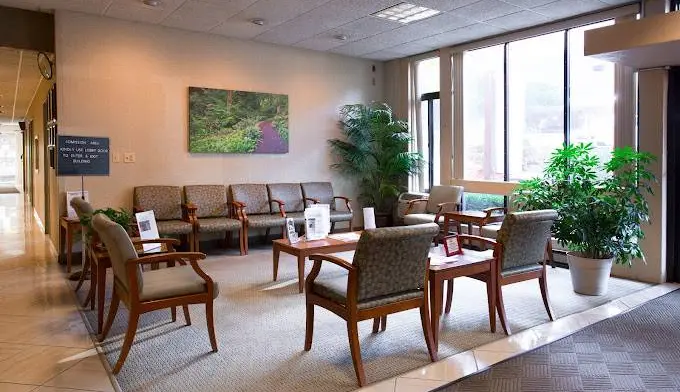
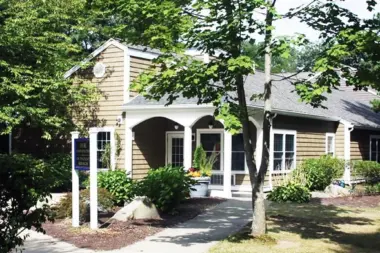
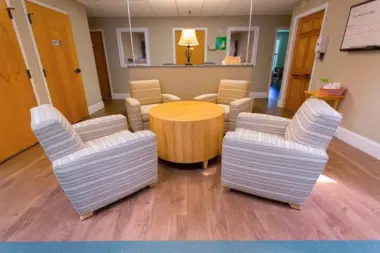

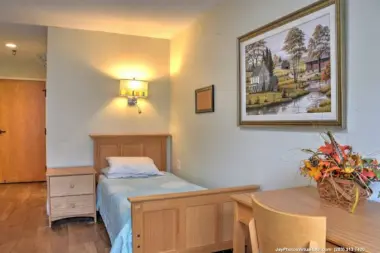
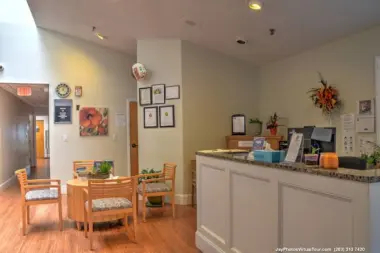
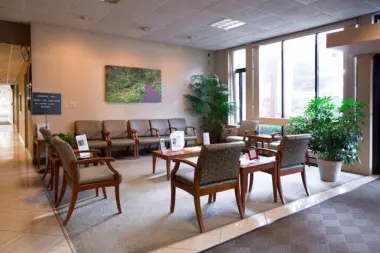
Accepted Insurance

Other Forms of Payment
Private insurance refers to any kind of healthcare coverage that isn't from the state or federal government. This includes individual and family plans offered by an employer or purchased from the Insurance Marketplace. Every plan will have different requirements and out of pocket costs so be sure to get the full details before you start treatment.
Self-pay involves paying for treatment out of your own pocket. You can use savings or credit, get a personal loan, or receive help from family and friends to fund your treatment. If you don't have insurance or your insurance plan doesn't cover a specific program, self-pay can help ensure you still get the care you need.
Financial aid can take many forms. Centers may have grants or scholarships available to clients who meet eligibility requirements. Programs that receive SAMHSA grants may have financial aid available for those who need treatment as well. Grants and scholarships can help you pai for treatment without having to repay.
Medicaid is a state based program that helps lower-income individuals and families pay for healthcare. Medicaid covers addiction treatment so those enrolled can use their coverage to pay for rehab. When a program accepts Medicaid the client often pays very little or nothing out of their own pocket.
Military members, veterans, and eligible dependents have access to specific insurance programs that help them get the care they need. TRICARE and VA insurance can help you access low cost or no cost addiction and mental health treatment. Programs that accept military insurance often have targeted treatment focused on the unique challenges military members, veterans, and their families face.
Addiction Treatments
Levels of Care
Outpatient Programs (OP) are for those seeking mental rehab or drug rehab, but who also stay at home every night. The main difference between outpatient treatment (OP) and intensive outpatient treatment (IOP) lies in the amount of hours the patient spends at the facility. Most of the time an outpatient program is designed for someone who has completed an inpatient stay and is looking to continue their growth in recovery. Outpatient is not meant to be the starting point, it is commonly referred to as aftercare.
Residential treatment programs are those that offer housing and meals in addition to substance abuse treatment. Rehab facilities that offer residential treatment allow patients to focus solely on recovery, in an environment totally separate from their lives. Some rehab centers specialize in short-term residential treatment (a few days to a week or two), while others solely provide treatment on a long-term basis (several weeks to months). Some offer both, and tailor treatment to the patient's individual requirements.
Intensive Outpatient Programs (IOP) are for those who want or need a very structured treatment program but who also wish to live at home and continue with certain responsibilities (such as work or school). IOP substance abuse treatment programs vary in duration and intensity, and certain outpatient rehab centers will offer individualized treatment programs.
Drug and alcohol addiction often takes a heavy toll on one's body. Over time, a physical dependence can develop, meaning the body physiologically needs the substance to function. Detox is the process of removing drugs and/or alcohol from the body, a process that can be lethal if mismanaged. Medical detox is done by licensed medical professionals who monitor vital signs and keep you safe, healthy, and as comfortable as possible as you go through detox and withdrawal.
Treatments
The goal of treatment for alcoholism is abstinence. Those with poor social support, poor motivation, or psychiatric disorders tend to relapse within a few years of treatment. For these people, success is measured by longer periods of abstinence, reduced use of alcohol, better health, and improved social functioning. Recovery and Maintenance are usually based on 12 step programs and AA meetings.
During drug rehab in Rhode Island, you'll participate in a variety of therapeutic interventions designed to help you break free from addiction. Common methods include cognitive behavioral therapy, music and art therapy, 12-step support, and nutrition/exercise.
Opioid rehabs specialize in supporting those recovering from opioid addiction. They treat those suffering from addiction to illegal opioids like heroin, as well as prescription drugs like oxycodone. These centers typically combine both physical as well as mental and emotional support to help stop addiction. Physical support often includes medical detox and subsequent medical support (including medication), and mental support includes in-depth therapy to address the underlying causes of addiction.
Substance rehabs focus on helping individuals recover from substance abuse, including alcohol and drug addiction (both illegal and prescription drugs). They often include the opportunity to engage in both individual as well as group therapy.
Programs
Adult rehab programs include therapies tailored to each client's specific needs, goals, and recovery progress. They are tailored to the specific challenges adult clients may face, including family and work pressures and commitments. From inpatient and residential treatment to various levels of outpatient services, there are many options available. Some facilities also help adults work through co-occurring conditions, like anxiety, that can accompany addiction.
Clinical Services
AdCare Rhode Island offers a range of structured family counseling and complimentary support services. Their Family Program is designed to educate loved ones about substance dependency, as well as provide support for family members in a therapeutic, group-mentoring setting. All family programs are facilitated by knowledgeable and experienced professionals, who also provide treatment to our patients.
Group therapy is any therapeutic work that happens in a group (not one-on-one). There are a number of different group therapy modalities, including support groups, experiential therapy, psycho-education, and more. Group therapy involves treatment as well as processing interaction between group members.
In individual therapy, a patient meets one-on-one with a trained psychologist or counselor. Therapy is a pivotal part of effective substance abuse treatment, as it often covers root causes of addiction, including challenges faced by the patient in their social, family, and work/school life.
Amenities
-
Residential Setting
-
Private Setting
Staff & Accreditations
Staff
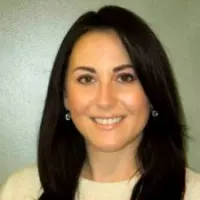
Andrea Dayotas, MA, CAGS, LMHC, LSWA, LADC
Facility Executive Director, AdCare Hospital & AdCare Worcester Outpatient

John N. Copeland
Director of Clinical Services

Dr. Mohammad Alhabbal, MD
Medical Director, AdCare Hospital

Sazha Alexandra Ramos
VP of Military & Veteran Affairs

Adam Jakola, RN
Admissions Director, AdCare Hospital

Amanda Owens
Assistant Director of AdCare Worcester Outpatient Services
Accreditations

The Joint Commission, formerly known as JCAHO, is a nonprofit organization that accredits rehab organizations and programs. Founded in 1951, the Joint Commision's mission is to improve the quality of patient care and demonstrating the quality of patient care.
Joint Commission Accreditation: Yes
Contact Information
1950 Tower Hill Road
North Kingstown RI, 02852







